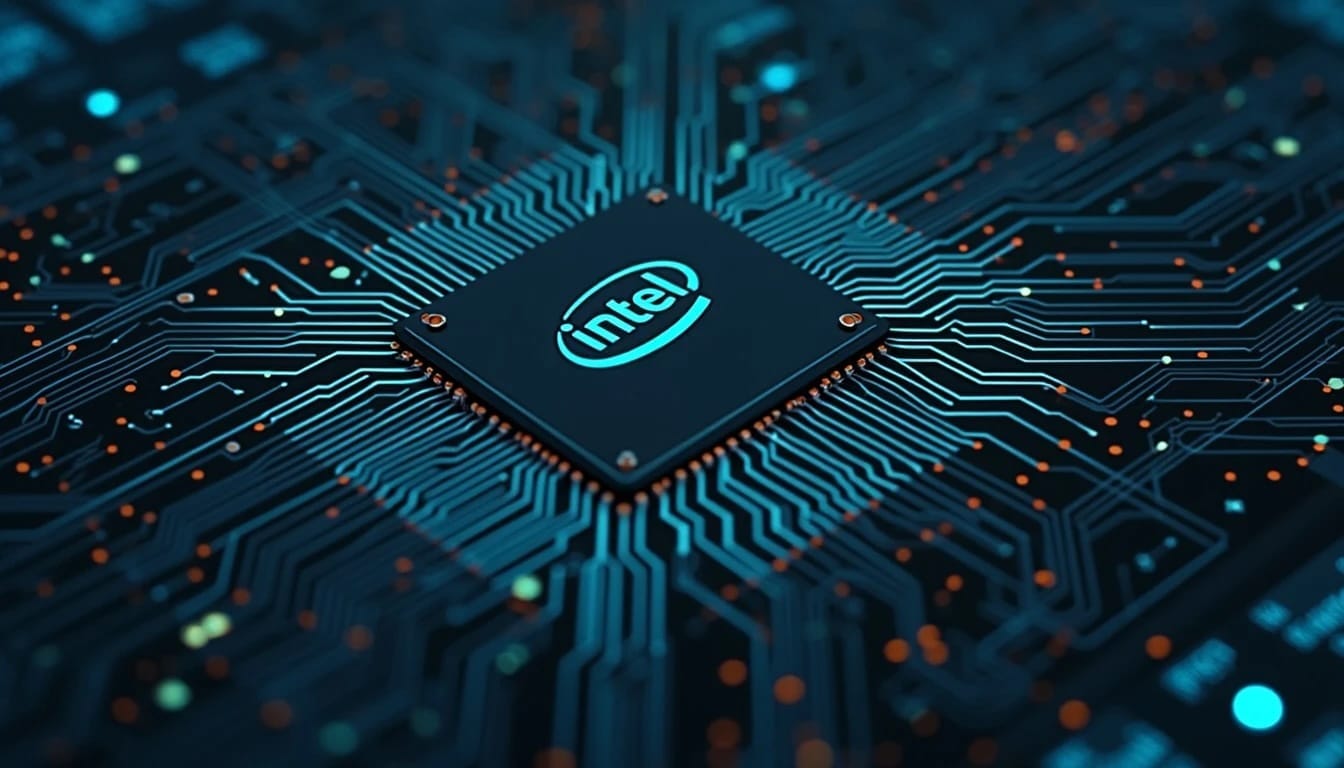The technology sector continues to dominate global markets, with chip and artificial intelligence (AI) companies at the heart of digital transformation. Within this landscape, TSMC and Broadcom have shown interest in various parts of Intel, a historic company that has seen its market position decline in recent years. If these negotiations materialize, Intel could end up being divided, marking a milestone in the semiconductor industry.
Intel in Trouble: Losses and Market Share Decline
Intel, one of the most iconic companies in processor development, has faced significant losses in recent years, particularly in its foundry division, Intel Foundry Services (IFS), and in the market for graphics cards. Its dedicated GPUs have gained a market share of less than 1%, and CPU sales have also shown a downward trend.
These difficulties have led Intel to drop 15 spots in the ranking of the most valuable companies in the world, now placing it at 170. This context has generated speculation about a possible sale of key parts of its business to more profitable companies, such as Broadcom and TSMC.
Interest from TSMC and Broadcom: A Possible Division of Intel
Broadcom and TSMC reportedly share an interest in acquiring different assets from Intel, although this is not a joint strategy. While Broadcom aims to acquire the chip design division, TSMC is interested in its semiconductor factories in the United States.
This situation is noteworthy, as Broadcom had previously criticized Intel’s 18A manufacturing process, Intel’s most advanced manufacturing node, suggesting it did not meet expectations. Despite this, it now seems to have reconsidered its position and is looking to leverage Intel’s assets to strengthen its design capabilities.
On its part, TSMC has a clear strategy for expansion in the U.S., and acquiring Intel’s factories would be a key step in that direction. This would allow it to enhance its presence in the U.S. and reduce its dependence on Taiwan amid rising geopolitical tensions.
Negotiations with the Trump Administration Could Limit TSMC
Intel has confirmed that it is engaged in active negotiations with officials from the Trump administration, with the aim of maximizing shareholder value. This could facilitate a potential agreement with Broadcom, but it could complicate matters for TSMC, as the former president has consistently opposed Taiwanese companies increasing their control over the U.S. chip industry.
Intel’s interim CEO, Frank Yeary, has emphasized that the company is evaluating all its strategic options. Meanwhile, Broadcom and TSMC will continue to push for the assets they seek, which could result in a reconfiguration of the semiconductor market.
A Possible New Order in the Chip Industry
If these transactions come to fruition, Intel would lose some of its control over chip design and manufacturing, paving the way for greater influence from TSMC and Broadcom. This would alter the dynamics of the industry, where Intel, once a leader, would find itself fragmented and facing an uncertain future.
For now, the outcome remains uncertain, but it is clear that the semiconductor market is at a turning point. The decisions made in the coming months will define Intel’s future and could disrupt the power structure in the chip industry.
via: Reuters

